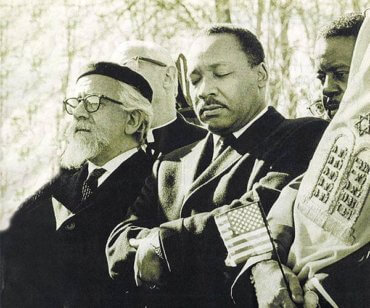How Does Jewish Law Handle “He Said/She Said?”
Dear Jew in the City-
In the wake of the #metoo movement, it got me thinking, how would Jewish Law handle a “he said/she said” situation? How much evidence is enough to implicate someone according to the Torah in a case with no witnesses?
Sincerely,
A Concerned Woman
Dear Concerned-
I was sent this question a while ago and, honestly, I’ve procrastinated answering it because it requires speaking about the #metoo movement, which is one of those cases where whatever I say is going to anger someone. Well, once more unto the breach, dear friends! [Henry V, Act III]
The situation that led to the #metoo movement is incredibly disturbing and some rectification is long overdue. However, when the movement first started, I was bothered by comments on Facebook saying that the speaker would always believe a woman who made such a claim. I have a conceptual problem with taking sides in hypothetical cases that have not yet occurred and whose facts are completely unknown. How would it be if someone said they would always side with a Jew over an Arab? Or with a black person over a white person? I think it’s important to hear the actual facts before rushing to judgment in any matter of importance.
While I believe that the woman is speaking truthfully and accurately in the overwhelming majority of cases, there have been noteworthy examples to the contrary. These include not only famous cases like those of Tawana Brawley and the Duke lacrosse scandal, but also far less celebrated incidents. (I am personally aware of at least two cases that never hit the news in which women lobbed false allegations at innocent men, which they later withdrew.)
This is not to suggest that accusations have a 50/50 chance of being true. As stated, I believe that the accusers are telling the truth in the vast majority of such situations. It’s just that “law of averages” is not sufficient in a court of law where there’s a presumption of innocence and the burden of proof is on the plaintiff. In any given accusation, the accused may well be innocent and must be provided legal defense to that effect, the same as in charges of burglary, homicide or driving under the influence. In this, Jewish law and secular law are very similar.
Jewish courts are all about having a level playing field so that neither party has an unfair advantage. If one person were to take another to beis din (Jewish court), each party would pick a judge to hear the case and those two judges would pick a third. The parties could also decide whether to use legal representation or to represent themselves. But neither party is permitted a benefit that the other does not also enjoy. For example, the court may not permit one party to sit while requiring the other to stand; both sides must be treated the same.
The fact that the accuser is likely a woman in your scenario and the accused is likely a man is of no consequence. There is no legal benefit to gender in court cases and favoritism of any kind is strictly prohibited by the Torah. We see this from two seemingly contradictory mitzvos.
Let’s say that you were a judge hearing a case between a wealthy philanthropist of your community and a poor local widow. (For our purposes, it’s not important who is the plaintiff and who is the defendant.) You might think, “We really need this rich, important guy’s support. For the greater good, I’d better rule in his favor.” Or, you might think, “This rich guy has plenty of money but this widow has none. He’s required to support the needy anyway so I’ll rule in her favor.” Each of these lines of reasoning is prohibited because they’re not about the facts of the case. The Torah prohibits both favoring the rich and powerful as a form of honor and favoring the meek and humble as a form of charity. Only the facts of the case matter. (In civil cases, the court might try to promote peace by hammering out a compromise but the parties have the right to insist that the court issue a definitive ruling.)
There are other rules designed to protect both parties in a court case, not the least of which is the prohibition against a judge taking a bribe. This may seem a no-brainer but the definition of what’s considered a bribe is particularly broad. Consider this incident, recounted in Talmud Kesubos (105b):
Rabbi Yishmael ben Rabbi Yosi had a sharecropper who worked his land. As payment, the sharecropper would deliver a basket of produce from the orchard every week on Friday. On one occasion, the sharecropper was going to Rabbi Yishmael to hear a court case on a Thursday. Since he was going to see Rabbi Yishmael, he brought the basket of produce that he would have brought the next day anyway. Even though it was Rabbi Yishmael’s own property, bringing it early constituted a favor and therefore, however unintentionally, a bribe. Rabbi Yishmael refused to accept the produce early and he recused himself from hearing the case. He sat in the gallery to watch the proceedings and found himself thinking how the sharecropper should plead in order to win the case. Once Rabbi Yishmael realized how even an abortive attempt to deliver his own property colored his judgment, he declared, “A curse on those who accept bribes! I didn’t even accept my own property and it still biased my judgment. How much more must it bias those who actually accept bribes!”
Another rule of equity in court is that the judges are not permitted to hear one party in the absence of the other. This is explicit in such verses as “I (Moshe) charged your judges at that time, saying, ‘Hear the cases between your brethren, and judge righteously between a man and his brother’” (Deut. 1:16) and “Both parties who have the controversy shall stand before God, before the kohanim and the judges that shall be in those days” (Deut. 19:17). There are other rules.
With all this in mind, how would judges rule in a dispute in which there are no witnesses? I couldn’t say because we don’t have the facts of the case. They would hear both parties and apply a variety of legal principles, like migo (the presumption that certain statements are truthful because if one were going to lie, there are stronger claims they could have made) and bari v’shema, bari adif (if one party says he’s sure and the other is in doubt, the one who claims to be sure has the stronger position). Without knowing the facts of the case, I cannot begin to speculate. (Even if I had the facts, I’m not a judge, so I’m certainly capable of being surprised.) All I know is that the process is designed to promote equity and to give all parties a fair shake.
Sincerely,
Rabbi Jack Abramowitz
JITC Educational Correspondent
If you found this content meaningful and want to help further our mission through our Keter, Makom, and Tikun branches, please consider becoming a Change Maker today.







